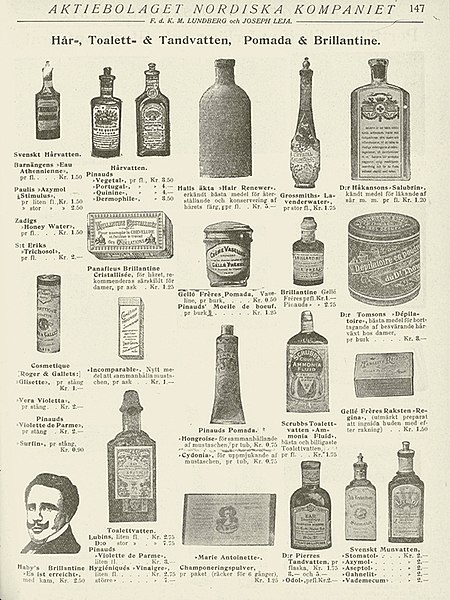Personal care products are consumer products which are applied on various external parts of the body such as skin, hair, nails, lips, external genital and anal areas, as well as teeth and mucous membrane of the oral cavity, in order to make them clean, protect them from harmful germs and keep them in good condition. They promote personal hygiene and overall health, well-being and appearance of those body parts. Toiletries form a narrower category of personal care products which are used for basic hygiene and cleanliness as a part of a daily routine. Cosmetic products, in contrast, are used for personal grooming and beautification. Pharmaceutical products are not considered personal care products.
Swedish advertisement for toiletries (c. 1905/06)
Hygiene is a set of practices performed to preserve health.
According to the World Health Organization (WHO), "Hygiene refers to conditions and practices that help to maintain health and prevent the spread of diseases." Personal hygiene refers to maintaining the body's cleanliness. Hygiene activities can be grouped into the following: home and everyday hygiene, personal hygiene, medical hygiene, sleep hygiene, and food hygiene. Home and every day hygiene includes hand washing, respiratory hygiene, food hygiene at home, hygiene in the kitchen, hygiene in the bathroom, laundry hygiene, and medical hygiene at home.
Washing one's hands, a form of hygiene, is the most effective way to prevent the spread of infectious diseases.
Hand hygiene sign in public restroom
A tippy tap for handwashing after using a urine-diverting dry toilet in Pumpuentsa, Ecuador
A clear plastic toiletry bag





